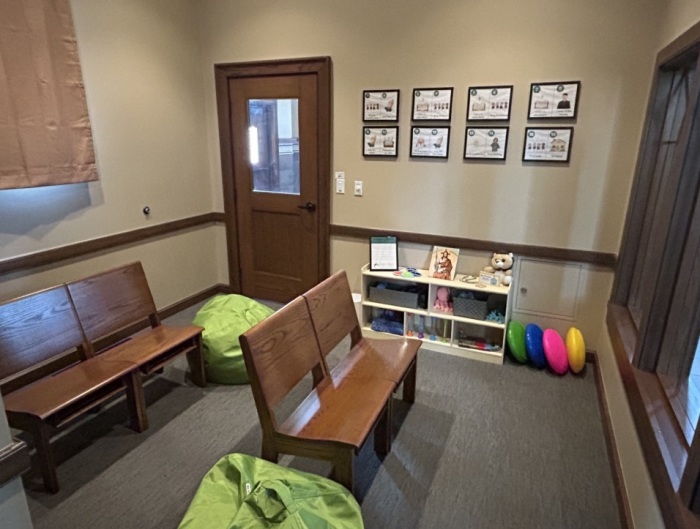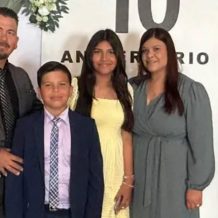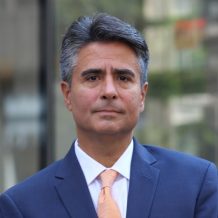To accommodate families of children facing sensory challenges, including young people on the autism spectrum, some churches are opening spaces to better serve the needs of their members during worship.

Saint Pius X Catholic Church of Granger, Indiana, a parish comprised of 3,000 families, is one of those churches.
The Catholic parish opened the sensory-sensitive room earlier this year, converting a space that had originally served as a storage area for the congregation.
Stephanie Sibal, director of stewardship and engagement, told The Christian Post that converting it to a sensory room traces its origins to a discussion among members of St. Pius X’s children’s faith formation team.
“Nine months ago, we started planning and fundraising for the project,” Sibal told CP at the time of this interview, noting that “there was a lot of work that needed to be done to make” the former storage room “sensory-friendly.”
“Construction started about six months ago, and we’ve had the room open for almost two months. We’re already hearing about how the space is allowing parishioners with sensory needs — children and adults — to be able to more fully participate in the Mass, some for the first time.”
Tim Wheeler, director of religious education at St. Pius X, told CP that the church created the room to help families at the parish “who have members who live with sensory processing disorders” and “are active members.”
“This space is an extension of our church, not just a separate room, and it allows these families to not only worship with our parish family, but with their families as well,” said Wheeler.
“We want to open our doors wide for all of God’s children, and this room is a resource for those families. The room is there for them to use, but we also don’t expect anyone to use it if they’d rather sit in the pews as a family.”

To make the room appropriate for those with sensory disorders, it was built to include additional insulation, as well as special windows that limit the amount of noise that can come through.
There is also a dial present that can control microphone volume and dimmable lights, along with alternative seating and what Wheeler called “fidgets” to help people calm themselves when necessary.
The room also includes images and descriptions of the various parts of the Catholic Mass to help those in the space follow along and participate in the worship.
“It is important to us that people know this isn’t a calming room or a playroom, but a room specifically designed for those with sensory processing disorders,” Wheeler emphasized. “It can be used for the entire Mass or just certain moments, but it is a resource for these families, not an expectation that they use it.”
Lakewood Church of Houston, Texas, launched the Lakewood Champions Club ministry in 2009 to support the spiritual development of children and others with special needs.
Lakewood Associate Pastor Craig Johnson, who founded the Champion Club, told CP in an interview that the inspiration came from his son, Connor, being diagnosed with Autism in 2006.
“One of the challenges was being able to go to church as a family. At that time and even today, the majority of churches don’t have any ministry or program for special needs children,” said Johnson.
According to Johnson, Lakewood’s ministry includes a “sensory station” in which they “work with the five senses” and serves as “a calming area where they can regulate and be able to learn.”
There is also a “creative learning station” where they “work with them educationally through different methods and we develop their gifts and talents so they serve.” Lakewood also has a “spirit area” to “help them develop a relationship with God through God’s Word, lessons, scripture memorization and worship.”
“At our services, they will rotate in between these four stations, and they are developed just like every other child. We also provide inclusive opportunities with typical children so that one day the child may move into a typical environment,” Johnson said.
“It also provides for the typical child awareness and empathy for the special needs children. Now we have a Champions kids program model, a teen program model, and an adult program model.”
Another prominent congregation working on making a more welcoming space for those with special needs is Liquid Church, a multi-site megachurch in New Jersey.
Eryn Mera, a pastor who oversees special needs ministry at Liquid Church, told CP that the church has sensory rooms in the classrooms at the Parsippany campus, as well as what she called “a chill space/sensory room” at other campuses.
“We have buddies who support them, use chill spaces to give them time to reset, and we use sensory toys and adaptive materials,” explained Mera. “Kids worship in the class with peers, middle schoolers/teens/adults worship with peers in worship or at special events for their age group.”
Additionally, Mera noted that Liquid Church offers “headphones or a quiet room to reset when needed.”
‘God wants these special individuals to know Him’
Tom Stolle, the executive director of the Baptist Convention of Maryland/Delaware and the father of a son named Jimmy who has autism and other intellectual challenges, believes that the introduction of special worship spaces for those struggling with similar issues is on the rise.
“I have seen several churches that affiliate with the BCM/D create spaces specifically for individuals with sensory challenges,” said Stolle, noting that his home church has undertaken such measures.
Known as Wonderfully Made, the ministry has been a great benefit to his son, said Stolle, explaining that Jimmy “cannot sit through a standard worship service” due to the noise.
“We know God created my son Jimmy and people like Jimmy in the image of God. We know God wants these special individuals to know Him. He receives the Gospel each week in this Wonderfully Made ministry in the way he can,” he said.
“My church is not the only church in our convention ministering to individuals like Jimmy. I have seen an increase in this effort. Other churches have created designated spaces, and we have a church within our convention that started a church that is specifically for individuals affected by disabilities.”
Stolle believes that “we will continue to see an increase” in such ministry endeavors, adding that “I believe the church itself is disabled if it does not include individuals and families affected by disabilities.”
“When the church does not make inclusion of individuals affected by disability a part of their mission, they are leaving behind individuals,” said Stolle. “Jesus didn’t go to the cross and die only for people not affected by disabilities.”
“Churches should create these spaces because without them, some families won’t come to church. They know, due to sensory challenges, their child can’t tolerate a standard worship service. They also may believe that the church members won’t welcome their child because they may feel the child is disruptive.”
Scott McConnell, executive director of Lifeway Research, a research organization centered on Evangelical church trends, told CP that the trend of sensory rooms for worship is probably more centered on larger churches “due to the logistical challenges.”
“Sensory disorder symptoms related to loud noise and bright lights would be more of an issue in churches that utilize a lot of contemporary lighting elements or prefer to set their volume loud,” he explained.
“However, more churches should be discussing how best to welcome people with sensory processing disorders since the symptoms often coexist with certain mental health conditions, and the number of people with those diagnoses has been increasing rapidly.”
McConnell also told CP that “listening to the needs of individuals in a congregation is always important” when determining how to organize corporate worship.
“In most church activities, the goal is to mainstream as many people as possible,” he continued. “If the goal of setting up a separate space is simply so that the rest of the congregation is not inconvenienced, then you would have to question the motive.”
‘A piece of the Kingdom’
When asked about what advice she had for churches considering a similar worship space, Sibal of St. Pius X told CP that the size of a congregation should not be an issue.
“No matter the size of your church, if this is something you are interested in doing, find the space. The support will come because the need is there,” Sibal said.
“A key for us throughout the process was getting input from the families that were going to use the space — from planning to construction to filling the room with adaptable seating and fidgets. This isn’t a playroom or a traditional calming room — it’s an adaptable and interactive worship space.”
Mera of Liquid Church told CP that she believed it was important to “start small,” noting that her church began with a “Buddy Program” for those with special needs, then expanded from there.
“It is a lot of work, but it is well worth it because we do not get the full expression of God’s Kingdom if we do not strive to include people of all abilities,” said Mera.
“Without our friends on the spectrum, or with Down Syndrome, or other abilities, we would be missing a piece of the Kingdom.”
 English
English Português
Português Español
Español Français
Français











